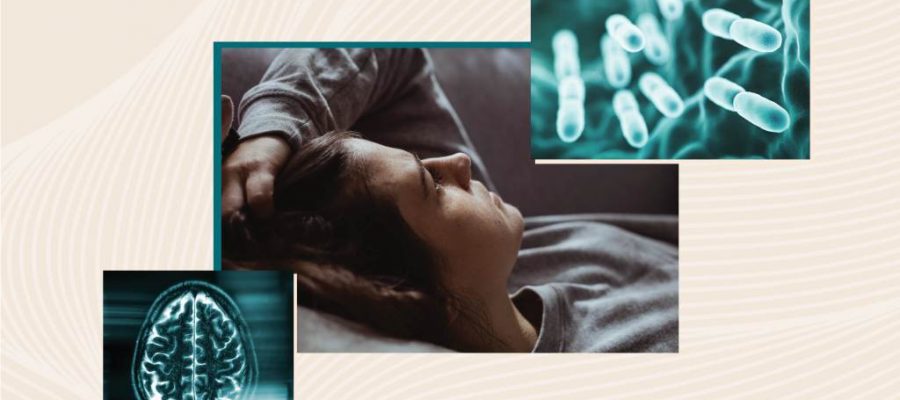
The idea of ingesting someone else’s poop might sound like a dare gone wrong, but fecal matter transplants are a promising new treatment for mental health. That’s because poop transplants supply “good bacteria” to the colon and restore a healthy balance to the gut microbiome.
Scientists are understanding the importance of taking care of your gut. Think about all the times you felt butterflies in your stomach or felt queasy minutes before a first date. Your gut has its own private line to the brain and the two organs communicate so much, it gets a say on our bodily processes.
“Our gut and brain were formed from the same fetal tissue in the womb, so they’re forever linked through the gut-brain axis connection,” says Gemma Stuart, the founding owner of Gutsy Health. “The trillions of microbes in our gut can influence our body weight, our response to infection, our immunity, and our mood.” It’s no wonder doctors refer to the gut as our second brain.
So when the trillions of microorganisms that call the gut home are not doing so well, they alert the brain for help. These distress signals show itself in many ways, including as signs of depression and loneliness.
Imbalance of the gut microbiome
To maintain a healthy gut, there needs to be more good than bad microbes. Shifting the balance toward more harmful bacteria makes it harder for good microbes to grow and prosper. There is some research linking certain bacterial families to depressive symptoms. Authors of a 2022 study in Nature Communications examined over a thousand poop samples of people with depression and narrowed down the culprits to thirteen bacterial strains. These bacterial species are involved in the creation of brain chemicals that promote depression.
Low serotonin production in the gut
Serotonin is the key brain chemical involved in regulating our moods and emotions. At normal levels, this “happy hormone” keeps you calm and emotionally stable. About 95 percent of serotonin is made in the gut.
One school of thought behind depression is that it’s associated with low serotonin levels, though this theory has stirred up debate in recent years. Some research suggests a gut imbalance can throw off the production and delivery of serotonin to the brain if there are not enough bacterial species to make the chemical.
Gut inflammation
Inflammation in the gut is strongly linked to an increased risk of depression. One explanation is that when the brain gets word of an immune response in the gut, the brain deploys its own defense. The increase in neuroinflammation is considered a path toward depression as it activates an intense and chronic stress response. Research suggests that inflammatory proteins deplete the existing supply of serotonin and affect production for more. The immune cells also slow down the process of creating new brain cells. A failure to produce new neurons is associated with depression because it makes it harder to separate negative thinking and memories.
The relationship between the gut and the brain is bidirectional
The gut’s special relationship with the brain goes both ways. A gut imbalance can worsen depression, but the brain can send out stress signals and cause an upset tummy. Looking into the guts of people with chronic inflammatory diseases has supported this theory. A 2022 study found people with inflammatory bowel disease (IBD) were nine times more likely to develop depression than those without IBD. People with depression were also twice as likely to receive an IBD diagnosis.
Of course, the gut microbiome is only one piece of the puzzle in figuring out this complex disease. And while some factors, like genes, are out of a person’s control, maintaining the gut microbiome is something you can do today to improve your mental well-being.
Stuart recommends eating a well-balanced diet comprised of fruits, vegetables, and whole grains. Following the Mediterranean diet is another option and is linked to a reduction in depressive symptoms. Processed foods and those with high-sugar content can increase inflammation and upset your stomach further. “The more natural, the better.” You can also take prebiotics to boost your gut health. These supply food to your good bacteria and help them grow. Probiotics found in fermented food like yogurt and kimchi can tip the scales in the microbial community by supplying bacteria good for your health.
Reducing stress and actively moving around are other ways to keep the gut in tip-top shape. Mediating or a 10-minute nature walk can do wonders for your mental health. “A healthy gut can lead to a healthier brain and vice versa,” notes Stuart. “If you’re looking to improve your mental wellness, it’s important to make good daily choices to look after your gut health.”
Before you go, check out these inspirational quotes that reshape how you think about food.

Source: Read Full Article

